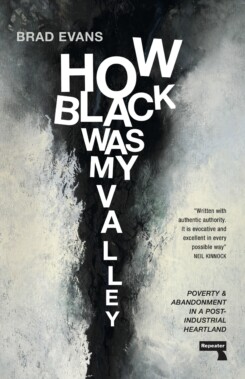£7.99 – £10.99
Haunted houses, bitter revenants and muffled heartbeats under floorboards — the American gothic is a macabre tale based on a true story.
Part memoir and part cultural critique, Darkly reveals the heart of America’s darkness in the specters left from chattel slavery and the persistence of white supremacy. Locating the gothic in technologies of terror, the insurgency of melancholy, and the guilty conscience of a country that got away with murder, Darkly shows how this trauma has been metabolized into art, music, film, and literature.
America’s story is founded in horror, with a culture shaped from the Black experience, proving that you can’t get more goth than Black.
Leila Taylor is a former goth kid and current Creative Director at Brooklyn Public Library. She’s given talks at the International Gothic Association and the Morbid Anatomy Museum, has an MFA in Graphic Design from Yale University and an MA in Liberal Studies from The New School of Social Research.
“I am struck by the depth of Leila Taylor’s vision. The generosity shown in the way a history (and present) is illuminated. This book does so much beautiful work to widen the expectations and understandings of blackness, and I am immensely thankful for it.”
“A powerful and deeply personal exploration of what it means to be an outsider within an outsider culture. Between the black aesthetic of goth culture and the Blackness of America, Leila Taylor navigates seamlessly between cultural critique, personal history, and a history of America’s troubled past in writing that is incessant, curious, and generous, and a voice that is at turns both searing and vulnerable. Powerful and strange, uncanny and unforgettable.”
“Takes us on a path that connects the Middle Ages, Edgar Allen Poe, the Trans-Atlantic slave trade, Afropunk, Prince, Black Lives Matter, and Hot Topic. It’s an incredible journey…”
“Fascinating. A revelatory exploration of blackness, goth culture and the ramifications of inherited trauma.”
“A rare glimpse into American gothic from an African American perspective.”




